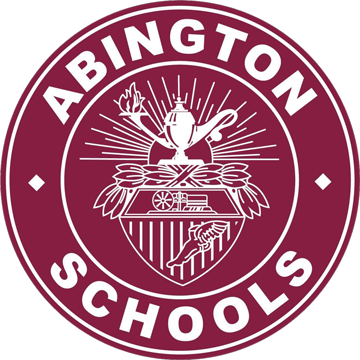If you are looking for more information on any of the topics listed within the counseling and psychological services section of the website, please contact the student services staff in your child’s school, or the District’s Student Services Department.
School Counseling & Psychological Services
A key focus of the Student Services Department is an emphasis on the whole child – including their social and emotional wellbeing. This is achieved through school counselors and psychological resources, social emotional learning, and school climate efforts which are all offered in each school building.
For more information, please read the information below.
Bullying Prevention
Abington School District is committed to providing an educational environment free from harassment, intimidation or bullying.
Psychological Services
School psychologists provide direct support and interventions to students; consult with teachers, families, and other school-employed mental health professionals (i.e., school counselors, school social workers) to improve support strategies; work with school administrators to improve school-wide practices and policies; and collaborate with community providers to coordinate needed services. School psychologists conduct psycho-educational evaluations which determine if a student qualifies for special education and/or 504 Service Agreements. School psychologists work as part of various teams in order to support students, including positive behavior support teams, CORE teams, bullying prevention teams, and several more. CORE team members work in a collaborative manner to address student needs in the general education program.
Counseling Services
Counseling services are offered in Abington School District from the elementary level, up through secondary. At the lower level, a school psychologist is offered in each elementary school building. As students age and their needs become more complex, the secondary level offers both counseling and college and career guidance.
Social Emotional Learning
Abington School District is committed to providing direct instruction in social and emotional learning. This is accomplished several ways:
Drug and Alcohol Prevention
Abington School District’s Drug and Alcohol Prevention program spans the entirety of a child’s K-12 education in Abington schools.
Elementary Program
At the elementary level, drug and alcohol education is delivered to younger grades through the incorporation of the Second Step curriculum, a program rooted in social-emotional learning that helps transform schools into supportive, successful learning environments uniquely equipped to help children thrive. The drug and alcohol prevention curriculum culminates at the elementary level with the DARE (Drug Abuse Resistance Education) program, in partnership with the Abington Township Police Department. The lessons bring a specially trained police officer into the students’ classrooms on a regular basis throughout the year, providing education in peer pressure, substance abuse, and other critical topics.
Secondary Program
As students advance into the secondary level, the drug and alcohol program expands, with efforts rooted in prevention. Education is delivered through the health curriculum, and also through specially tailored programs, events and assemblies held throughout the year–many of which are done in partnership with local agencies and organizations, aimed at delivering fresh, relevant content, such as the increased dangers of vaping, e-cigarettes and other substances that serve as a potential risk to adolescents. Addiction is also a crucial topic, and Abington School District secondary teachers and staff have completed appropriate trainings aimed at identifying and assisting students at risk.
For Parents/Guardians
Informational programs and support services are also available for parents and guardians who may be in need of guidance on how to talk with their children about the dangers of substance abuse, how to identify whether their child might be at risk, and/or how to seek help if they know their child is using. A number of resources and community groups are available to assist, and a member of the Student Services staff can point parents/guardians in the right direction and guide them through next steps. Contact Student Services at 215-881-2548 or read our parent/guardian resource section below for assistance.
Safe2Say Something
If you need to report a student who may pose an immediate threat to themselves or others, you should contact the school principal or one of the following members of the Threat Assessment Team: Email Dr. James Melchor (215-881-2508); Email Mr. Steve Hochwind (215-881-2554); or Email Dr. Robert Rosenthal (215-881-2552). Alternatively, you can make a report anonymously online at Safe2SayPA.org or by calling 1-844-SAF2SAY (1-844-723-2729).
